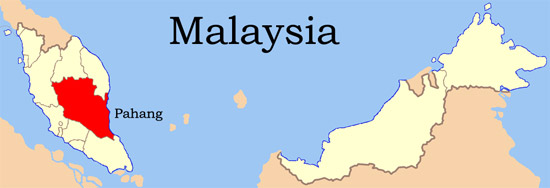Feb. 6 – Malaysia – the first Southeast Asian nation to establish formal diplomatic ties with Communist China back in 1974 – has formally launched the first joint Malay-Sino industrial park in Kuantan, the state capital of Pahang Province.
Pahang is Malaysia’s third-largest state, while Kuantan it is located roughly halfway up the east Malay coast between Singapore and Kota Bharu and is the ninth largest city in Malaysia. Malaysia’s National Physical Plan 2005 identified Kuantan as one of the future growth centers and a hub for trade, commerce, transportation and tourism, and is considered as the social, economic and commercial hub for the East Coast of Peninsular Malaysia due to its strategic location. It is also the site of Malaysia’s first Special Economic Zone (SEZ), with the new Chinese facility located nearby.

The new park, known officially as the Malaysia-China Kuantan Industrial Park (MCKIP) will be completed by 2020 and is expected to attract in excess of US$1 billion in annual revenues, employing some 5,500 Malay workers.
Constructed at an estimated cost of US$3.8 billion, Malaysian Prime Minister Datuk Seri Najib Razak and the National Committee of the Chinese People’s Political Consultative Conference Chairman Jia Qinglin jointly launched the project, the first in Malaysia to be accorded national status.
The MCKIP is expected to bring relations between the two countries to greater heights as it will play a synergistic role with its sister park, the China-Malaysia Qinzhou Industrial Park in Qinzhou, Guangxi Province on China’s Southwest coast. Razak said potential spin-offs from the MCKIP were substantial, including in downstream and processing industries, transportation and logistics, training, retail, and harbor-related industries.
“It promises opportunities for investors from China and beyond and will also benefit the Malaysian business community as well as the people of Pahang and the ECER,” he said.
Kuantan’s location on the South China Sea also offers the quickest and most direct route to the major ports of the rapidly developing Guangxi Beibu Gulf Economic Region.


